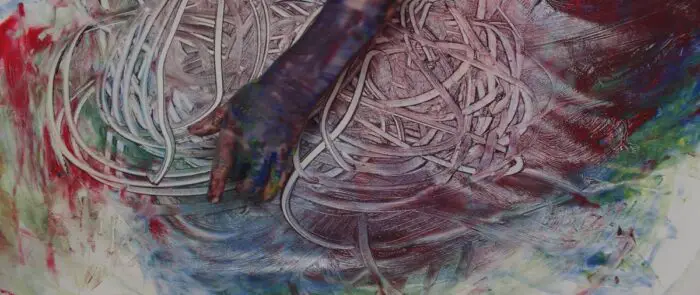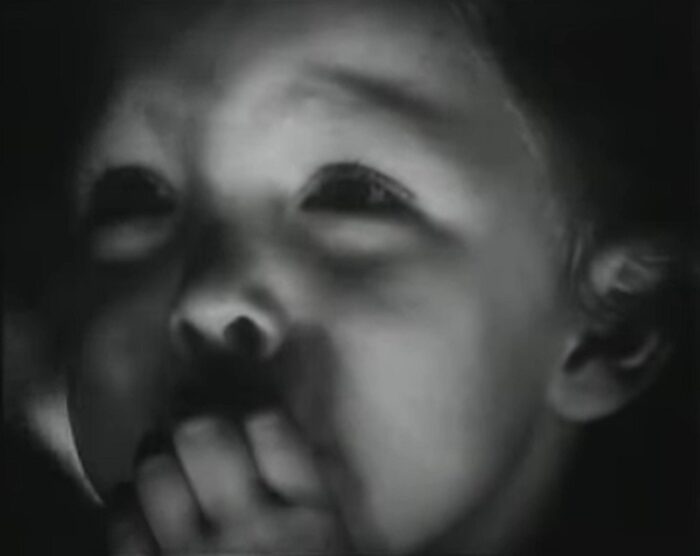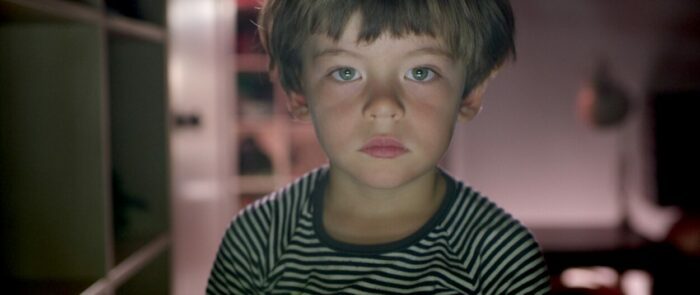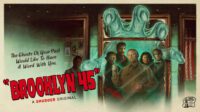“The first rule of a documentary filmmaker is: Have the patience to observe life,” once said the Latvian filmmaker Herz Frank, one of the founders of the aptly named Riga School of Poetic Documentary Cinema. His was a practice that bridged the poetic, expressive traits of cinema with documentary reality, perhaps most effectively in his short film Ten Minutes Older. Art, Frank wrote, was “the only living bridge between people of various generations, between time periods.” It’s a trenchant observation, one that directly informs the equally profound, richly evocative new documentary Users from MacArthur Genius Award winner Natalia Almada, a film that won her Best Documentary Feature at Sundance this year.
For Almada, it was that very moment of generational crossing—the birth of her first son—that prompted the inquiry undergirding Users. In 2016 already an accomplished filmmaker, Almada was in labor as her film Todo las demas/Everything Else premiered, confronting a host of questions about technology. How would the very screens she had mastered in her filmmaking inform or impact her own parenting? It’s a question every parent today faces—and with rapid advances in AI ones that will be quickly even more paramount in the decades to come—but few like Almada have had the vision to address.
Would she use a phone with her child? Use video to babysit? How much screen time would be allowed, appropriated? Would smart devices—like a crib that provides nearly-instant comfort to a crying infant without necessitating a mother’s touch—enhance or diminish her parenting? Those led to deeper considerations of the roles technology plays in processing food, impacting the environment, educating—for better or worse—impressionable young minds? The impacts of technology for a 21st-century parent would be impossible to escape, but they would not be beyond Almada’s ability to observe, using her own highly refined skills as a narrative feature filmmaker.
As a consequence, Users is a remarkably far-reaching nonfiction film. One might be hesitant to call it documentary, given the complete absence of the usual expository-participatory maneuvers one expects to see in much modern documentary: there are, in Users, no interviews, no visual direct-address, no lower-thirds chyrons or explanatory graphics of any sort, really no single protagonist or narrative thread to follow. Just evocative sequence after evocative sequence of stunning, nonpareil imagery, captured by director of photography Bennet Cerf and set to a score performed by the Grammy-winning Kronos Quartet.

Almada’s own training was in photography, and the images in Users are carefully, meticulously, painstakingly crafted with the patience and artistry of a stills photographer. Whether the subject is a child watching a screen, an owl observing its milieu, an agricultural enterprise shot from the sky, or cargo cars being sorted and lifted onto a carrier, every shot in Users is its own work of art. In narrative terms, their connections may seem fragile and tenuous, held together by the slightest of threads, but Almada’s conceit is that of the spider web: circuitous, perhaps, and fragile in places, but overall, strong and resilient enough to sustain its purpose. Almada’s own AI-cloned voice binds together the intersections, guiding viewers through the weave of her journey from new mother to curious investigator.
From indoor vertical farms to artificial waves, from an IVF embryo lab to fiber optic cabling, Almada and Cerf survey the normally-invisible infrastructure on which we all all-too-blithely depend. The big questions about our unchallenged dependency on these technologies are all filtered through a new mother’s perspective, her worry for a newborn child. How, in a world where nearly every interaction, every decision is impacted by technology, can—how should—one parent?

I mention Herz Frank and his short film Ten Minutes Older above intentionally, for there are moments when Users seems to echo Frank’s film directly. Ten Minutes Older, a ten-minute short made in 1978, consisted of a single unbroken, unedited shot with a moving, if carefully delimited camera observing ten children as they watch … something. We never see the object of their attention, only their cherubic faces pulled and stretched into various states of joy, excitement, fear, wonder, and confusion as the camera free-ranges from one face to the next and a musical score gaily, giddily provokes their reactions. Subtitled “A Tale of Good and Evil,” Frank’s film captures attention as completely as does whatever commands these children and reminds of the powers of screens and stories to compel behaviors. By its conclusion we—and they—are “ten minutes older,” if perhaps none the wiser.

In Users, Almada employs two (shorter) sequences that call to mind Frank and Ten Minutes Older. In the first, a boy stares at a screen, its light embellishing his curious, expressive face. We don’t know the object of his attention, but we can recognize how fully he’s enmeshed in what he’s watching. The pull is inescapable. (The sequence also reminds me a little of those in Bo Burnham’s brilliant Eighth Grade, where Elsie Fisher’s Kayla’s face is lit up in the glow of her phone’s social-media scroll.) In the second, echoing the first, a bowtied boy wearing a mammoth gaming headset chomps gum and clacks at his keyboard, his narrow-eyed expressions rising and falling with his apparent successes and failures, and he speaks to his unseen opponent: “I was out of ammo in my shotgun or else I would have killed you faster,” he explains in deadpan, almost oblivious to the implications of his words.
Almada’s own narration is spoken from an indeterminate moment in the future. “In the past,” she intones, “People stopped strangers on the street to ask what time it was. Time was different then. Everything was measured in minutes and hours. People went to work and did the tasks of machines and were paid for each hour. It took time to work. People traveled by bus, train, and drove cars, often getting stuck for long periods of time moving slowly. When they weren’t working they had to go to shops to buy their food and clothes. There was never enough time.”
The above may still be true for millions of people across the world, but Almada’s words portend an impending reality: AI and technology will change how, where, and why people work, which will in turn impact our very understanding of time. Even what it means to be human, with the rise of AI art, video, robotics, and deepfakes may change, a notion emphasized by the synthetic-voice narration credited to Descript’s Overdub text-to-speech model engine.
That the boundaries of Users‘ inquiry are nearly infinite proves both the film’s strength and its weakness. Some viewers might prefer the interview-and-explanation model of traditional documentary for such an inquiry, others a less personalized or idiosyncratic exploration of a filmmaker-turned-mother’s anxieties. Those viewers are not Almada’s intended audience.
But for those with open minds, visual leanings, and “the patience,” as Herz Frank noted, “to observe life,” Users is full of rich rewards, a feast of thought and emotion that will compel its own viewers to consider just how technology impacts their lives and relations, every bit as directly as Ten Minutes Older did two generations ago, with its similar mix of anxiety and awe.
Users opens Friday, June 9 at the Brooklyn Academy of Music (BAM) in New York City, and on Friday, June 16 at the Laemmle Glendale in Los Angeles, before expanding to other cities in North America. The New York theatrical run of Users at BAM will be paired with a complete retrospective of Natalia Almada’s filmography. 81 min. In English and Spanish with English subtitles. Directed by Natalia Almada. An Icarus Films Release.




